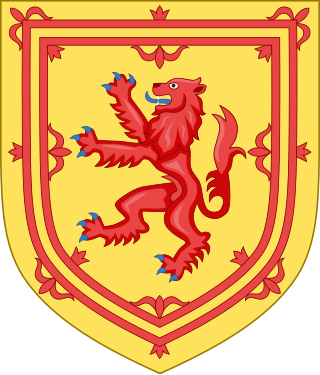
Local government in Scotland comprises thirty-two local authorities, commonly referred to as councils. Each council provides public services, including education, social care, waste management, libraries and planning. Councils receive the majority of their funding from the Scottish Government, but operate independently and are accountable to their local electorates. Councils raise additional income via the Council Tax, a locally variable domestic property tax, and Business rates, a non-domestic property tax.
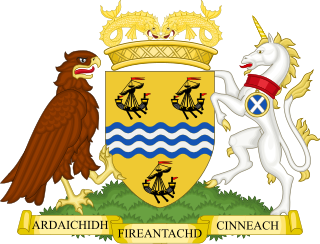
Comhairle nan Eilean Siar is the local government council for Na h-Eileanan Siar council area of Scotland. It is based in Stornoway in the Isle of Lewis.
Elections to West Dunbartonshire Council were held on 3 May 2007, the same day as the other Scottish local government elections and the Scottish Parliament general election. The election was the first one using six new wards created as a result of the Local Governance (Scotland) Act 2004, each ward will elect three or four councillors using the single transferable vote system form of proportional representation. The new wards replace 22 single-member wards which used the plurality system of election.
Elections to North Lanarkshire Council were held on 3 May 2007, the same day as the other Scottish local government elections and the Scottish Parliament general election. The election was the first one using 20 new wards created as a results of the Local Governance (Scotland) Act 2004, each ward will elect three or four councillors using the single transferable vote system a form of proportional representation. The new wards replace 70 single-member wards which used the plurality system of election.
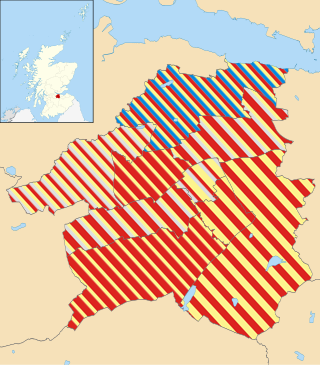
Elections to West Lothian Council were held on 3 May 2007, the same day as the other Scottish local government elections and the Scottish Parliament general election. The election was the first one using nine new wards created as a result of the Local Governance (Scotland) Act 2004, each ward will elect three or four councillors using the single transferable vote system form of proportional representation. The new wards replace 32 single-member wards which used the plurality system of election. Councillors remained in post until 2012.
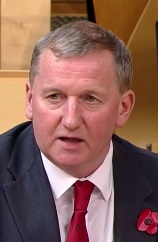
Elections to Fife Council were held on 3 May 2007, the same day as the other Scottish local government elections and the Scottish Parliament general election. The election was the first one using 23 new wards created as a result of the Local Governance (Scotland) Act 2004, each ward will elect three or four councillors using the single transferable vote system form of proportional representation. The new wards replace 78 single-member wards which used the plurality system of election.
Elections to Angus Council were held on 3 May 2007 the same day as the other Scottish local government elections and the Scottish Parliament general election. The election was the first one using 8 new wards created as a result of the Local Governance (Scotland) Act 2004, each ward will elect three or four councillors using the single transferable vote system a form of proportional representation. The new wards replace 29 single-member wards which used the plurality system of election.
Elections to Argyll and Bute Council were held on 3 May 2007 the same day as the other Scottish local government elections and the Scottish Parliament general election. The election was the first one using 11 new wards created as a result of the Local Governance (Scotland) Act 2004, each ward will elect three or four councillors using the single transferable vote system form of proportional representation. The new wards replace 36 single-member wards which used the plurality system of election.
Elections to The Moray Council were held on 3 May 2007, the same day as the Scottish Parliament election. The election was the first using the eight new wards created under the Local Governance (Scotland) Act 2004. 26 councillors were elected. Each ward elected either 3 or 4 members, using the STV electoral system. Previously there were single-member wards which used the first past the post electoral system. The election resulted in a previously Independent council becoming an Independent/Conservative coalition, with a majority of four. An SNP victory in a subsequent by-election held in February 2008 had reduced the Independent/Conservative majority to 2 seats.
Elections to North Ayrshire Council were held on 3 May 2007, the same day as the other Scottish local government elections and the Scottish Parliament general election. The election was the first one using eight new wards created as a result of the Local Governance (Scotland) Act 2004, each ward will elect three or four councillors using the single transferable vote system form of proportional representation. The new wards replace 30 single-member wards which used the plurality system of election.

Elections to Midlothian Council were held on 3 May 2007, the same day as the other Scottish local government elections and the Scottish Parliament general election. The election was the first one using six new wards created as a result of the Local Governance (Scotland) Act 2004. Each ward will elect three or four councillors using the single transferable vote system form of proportional representation. The new wards replace 18 single-member wards which used the plurality system of election.
Elections to Dumfries and Galloway Council were held on 3 May 2007 the same day as the other Scottish local government elections and the Scottish Parliament general election. The election was the first one using 13 new wards created as a result of the Local Governance (Scotland) Act 2004, each ward will elect three or four councillors using the single transferable vote system form of proportional representation. The new wards replace 47 single-member wards which used the plurality system of election.
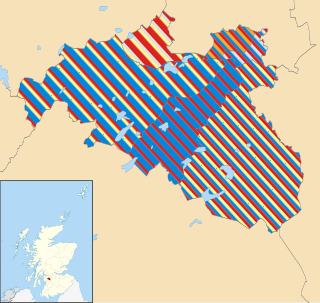
Elections to East Renfrewshire Council were held on 3 May 2007 the same day as the other Scottish local government elections and the Scottish Parliament general election.
Elections to Inverclyde Council were held on 3 May 2007 the same day as the Scottish Parliament general election. The election was the first one using six new wards created as a result of the Local Governance (Scotland) Act 2004; each ward will elect three or four councillors using the single transferable vote system, a form of proportional representation. The new wards replace 20 single-member wards which used the plurality system of election.

Elections to Shetland Islands Council were held on 3 May 2007 the same day as the other Scottish local government elections and the Scottish Parliament general election. The election was the first one using seven new wards created as a result of the Local Governance (Scotland) Act 2004. Each ward elected three or four councillors using the single transferable vote system, a form of proportional representation. The new wards replaced 22 single-member wards which used the plurality system of election. The council was one of only three in Scotland with a majority of elected members who were independents.

Elections to South Ayrshire Council were held on 3 May 2007, the same day as the other Scottish local government elections and the Scottish Parliament general election. The election was the first one using eight new wards created as a result of the Local Governance (Scotland) Act 2004, each ward will elect three or four councilors using the single transferable vote system form of proportional representation. The new wards replace 30 single-member wards which used the plurality system of election.
Elections to Stirling Council were held on 3 May 2007, the same day as the other Scottish local government elections and the Scottish Parliament general election. The election was the first one using seven new wards created as a result of the Local Governance (Scotland) Act 2004. Each ward elected three or four councillors using the single transferable vote system form of proportional representation. The new wards replaced 22 single-member wards which used the plurality system of election.
The 2012 Orkney Islands Council election took place on 3 May 2012 to elect members of Orkney Council. The election used the six wards created as a result of the Local Governance (Scotland) Act 2004, with each ward electing three or four Councillors using the single transferable vote system form of proportional representation, with 21 Councillors being elected.

The 2017 Orkney Islands Council election took place on 4 May 2017 to elect members of Orkney Islands Council. The election used the six wards created as a result of the Local Governance (Scotland) Act 2004, with each ward electing three or four Councillors using the single transferable vote system a form of proportional representation, with 21 Councillors being elected.
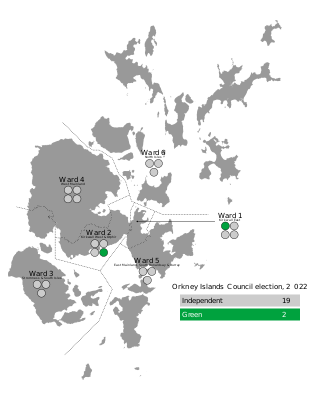
Elections to the Orkney Islands Council were held on 5 May 2022, the same day as the 31 other Scottish local government elections. The election used the six wards created under the Local Governance (Scotland) Act 2004, with 21 councillors being elected. Each ward elected either 3 or 4 members, using the STV electoral system.









